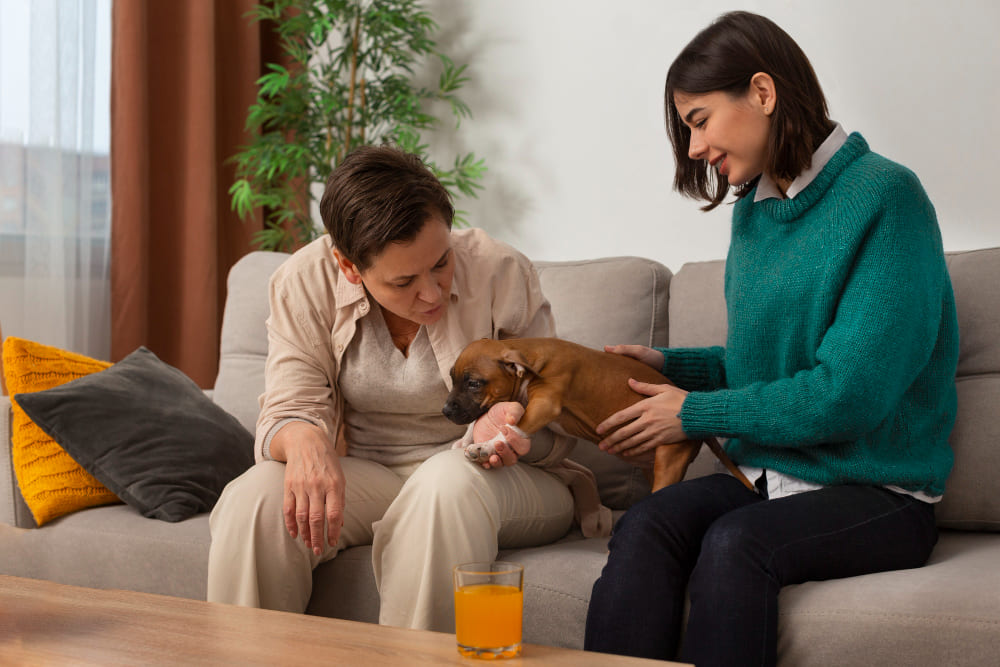How Pets Can Help Manage Depression and Anxiety

In a world where mental health struggles like depression and anxiety are increasingly common, people are searching for natural, sustainable ways to cope and heal. One of the most heartwarming and effective tools in this journey of mental wellness is the companionship of a pet. Whether it's the gentle purring of a cat, the wagging tail of a dog, or the calming presence of a fish tank, animals offer emotional support, routine, physical touch, and unconditional love that can significantly impact mental well-being.
The Science Behind the Bond
Studies have shown that interacting with pets increases levels of oxytocin, often referred to as the "love hormone," which helps reduce stress and promote feelings of happiness. At the same time, cortisol, the body’s primary stress hormone, is known to decrease. Petting a dog or simply watching a fish swim can cause measurable drops in heart rate and blood pressure, both indicators of relaxation. These physiological benefits directly counteract symptoms of anxiety and depression.
Routine and Responsibility
Depression can cause feelings of purposelessness and fatigue, often making it difficult to get out of bed or maintain daily routines. Pets, however, need care every day—feeding, walking, grooming, and attention. This encourages owners to stick to a routine, get outdoors, and engage in physical activity, all of which are critical in managing depression. These small but consistent acts of responsibility can help people regain a sense of control and accomplishment.
Unconditional Love and Nonjudgmental Companionship
Unlike human relationships that can sometimes feel complicated, a pet offers unconditional love. They don’t care about your job, appearance, or mistakes—they simply love you for being there. For individuals dealing with low self-esteem or feelings of worthlessness, this kind of companionship is a powerful reminder that they are loved and valued. Pets are always happy to see their owners, and that unwavering loyalty and affection can be a beacon of light on the darkest days.
Social Connection and Reduced Isolation
Anxiety and depression often lead to social withdrawal, but pets can act as social catalysts. Dog owners, for instance, often find themselves chatting with other dog walkers or visiting pet-friendly parks and cafés. Even online pet communities can offer a sense of belonging. This increased social interaction, even if minimal, can reduce feelings of isolation and loneliness. Therapy animals are even used in hospitals and nursing homes to create emotional connections with patients who may feel detached from the world.
Mindfulness and Living in the Moment
Pets live in the moment—they don't worry about the past or the future. Their joy is infectious, and their presence encourages mindfulness. Watching a cat chase a string or a dog bask in the sun reminds owners to pause, breathe, and appreciate simple pleasures. This practice of mindfulness is a well-documented method for reducing anxiety and managing depressive symptoms. Pets help anchor their humans to the present moment, gently guiding them away from anxious spirals or ruminative thoughts.
Conclusion
Pets are far more than just animals; they are healers, companions, and silent supporters. Their presence offers a type of therapy that is natural, affordable, and accessible. While they may not replace professional treatment, they complement it beautifully. In the quiet comfort of a pet's presence, many people find the strength to smile, get out of bed, and take steps toward healing. If you're battling depression or anxiety, a four-legged (or feathered or finned) friend might just be the lifeline you never knew you needed.